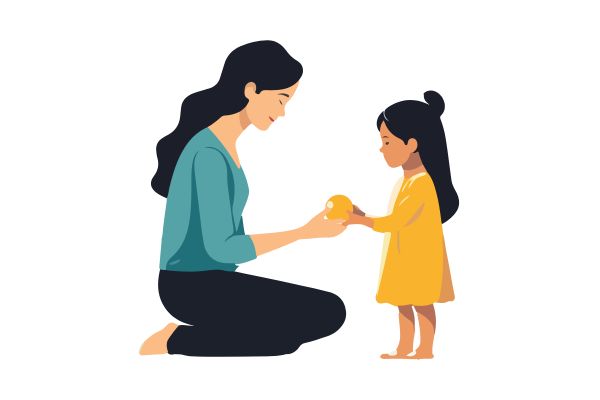The terrible twos – a phrase that strikes fear into the hearts of even the most patient parents. Toddlers are little balls of boundless energy, testing boundaries and exploring the world with a delightful disregard for rules. While their disobedience can be frustrating, it’s important to remember it’s a natural part of their development. So, how do you navigate this whirlwind phase and raise a well-behaved, respectful child? Here are 10 positive discipline strategies that will help you guide your little one without resorting to punishment:
10 Positive Discipline Strategies for Toddlers Who Don't Listen
1. Get Down to Their Level (Literally and Figuratively): When a toddler ignores your instructions, it can be tempting to raise your voice or resort to power struggles. But before you do, get down on their eye level. This simple act shows them you’re taking them seriously and creates a more open communication channel. Speak calmly and clearly, using short, simple sentences they can understand.
2. Pick Your Battles (and Choose Wisely): Toddlers have short attention spans and limited impulse control. Don’t sweat the small stuff. Is that crayon mark on the wall worth a meltdown? Focus on safety concerns, clear boundaries, and behaviors that truly matter. This reduces frustration for both you and your child.
3. The Power of “Yes” (with Limits): Give toddlers a sense of control by offering choices whenever possible. “Do you want to wear a red or blue shirt?” This empowers them to make decisions while still keeping you in charge (within a safe framework, of course).
4. Positive Reinforcement is Your Friend: Catch your child being good! Positive reinforcement, in the form of praise, smiles, or high-fives, is a powerful motivator. When they listen the first time, acknowledge it with a “Wow, I see you picked up your toys! Great job!” It encourages them to repeat the desired behavior.
5. The Magic of Redirection: Sometimes, a simple redirection can nip unwanted behavior in the bud. Is your toddler throwing toys? Offer them a basket to put them away instead. Are they climbing on the furniture? Please direct them to a safe play area with climbing toys. It helps them positively focus their energy.
6. Time-Ins – A Calming Tool, Not a Punishment: Time-outs, when used effectively, can be a valuable tool. If your child is having a meltdown, a brief time-out in a safe, calming space (not a punishment corner!) can help them regulate their emotions. The key is to keep it short (around 1 minute per year of age) and focus on reuniting when they’re calm.
7. Become a Master of Natural Consequences: Let the natural consequences of their actions be the teacher sometimes. For example, if they refuse to wear a jacket, they may get chilly outside. Explain this connection calmly (“You might feel cold if you don’t wear your jacket”) and allow them to experience the consequence (feeling a bit cold). Of course, use your judgment – natural consequences shouldn’t be harmful or unsafe.
8. Consistency is Key: The key to successful discipline is consistency. If you give in sometimes but not others, your child will get confused. Talk to your partner and caregivers and agree on a consistent approach to discipline.
9. Model the Behavior You Want to See: Children are incredible observers. They learn by watching you, so model the behavior you want to see in them. Be respectful and patient, and use kind language. If you want your child to speak politely, speak politely to them and others.
10. Focus on Teaching, not Punishing: Discipline isn’t about punishment; it’s about teaching your child what’s right and wrong. When they misbehave, take the opportunity to explain why their behavior was wrong and what they can do differently next time. Use this as a learning experience, not a chance to shame or belittle them.
Remember, toddlers are still developing their emotional regulation skills. Be patient, stay calm, and use these positive discipline strategies to guide your little one on their journey towards becoming a well-behaved, respectful child.





